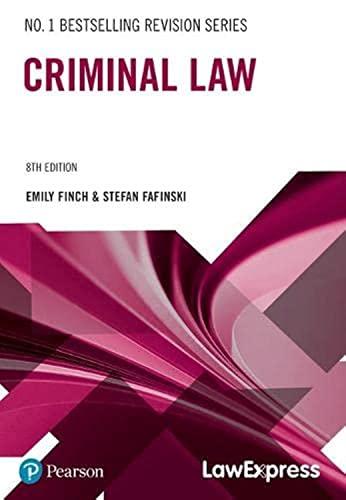Question
After defaulting on his bank loan and paying lawyers the little money he had left to defend him in court, Levi decided to put his

After defaulting on his bank loan and paying lawyers the little money he had left to defend him in court, Levi decided to put his business up for sale. He posted an ad on Craigslist and in an on-line magazine called "Tattoo Times." The ad stated the following: "Kick-ass tattoo and piercing parlor for sale in the prime of its existence. Fully equipped and ready to make the new owner a fortune." Levi received an inquiry by email within 2 days from someone signing their name "Inky Winky." Levi suggested they meet to discuss terms and Inky agreed to meet up the following day. Inky, whose real name was Tim Jones, had been working as a tattoo artist for the past 2 years and wanted to go out on his own. He loved Ithaca, and saw Levi's store as an opportunity to establish himself as a local business owner. They agreed on the purchase price of $60,000 to be paid in equal monthly installments over 5 years. Inky then offered to have his lawyer draw up the purchase and sale contract. Short on cash, Levi agreed. Two days later, Inky presented the written contract, which contained the agreed-upon terms between Levi and Inky. However, the written contract contained an additional term that the two had not discussed: an arbitration clause. The clause stated the following: The seller agrees that any claims of seller against purchaser arising under this Agreement shall be resolved in arbitration, and decided by an arbitrator appointed by the American Arbitration Association. The purchaser may elect to bring any claims of purchaser against seller in arbitration or court, in his sole discretion. Levi argued strenuously against this provision, arguing that it was unfair and one-sided. Inky responded that he was taking a big risk in buying Levi's business, and needed the flexibility of deciding whether to bring his claims in court or in arbitration. Levi, Inky explained, would only have a claim for unpaid monthly payments, which could easily be decided by an arbitrator. Levi disagreed with Inky's argument, but really wanted to get the deal done, so ultimately agreed to sign the Agreement as is, and closed on the sale. After 6 months of making $1,000 per month payments, Inky called Levi to tell him he couldn't pay him anymore. According to Inky, business was very slow and Inky was a much better tattoo artist than a business owner. Inky also explained to Levy that Inky was only 17 when he closed the sale with Levi, and although he had turned 18 just 3 months after the closing, he was voiding the agreement based on the fact that he was a minor. Levi said many bad words and hung up the phone. Levi then filed a complaint for breach of contract against Inky in court. Inky responded by claiming that Levi could only bring claims against Inky in arbitration, and asked the court to send the case to a private arbitrator.



Step by Step Solution
There are 3 Steps involved in it
Step: 1

Get Instant Access to Expert-Tailored Solutions
See step-by-step solutions with expert insights and AI powered tools for academic success
Step: 2

Step: 3

Ace Your Homework with AI
Get the answers you need in no time with our AI-driven, step-by-step assistance
Get Started


